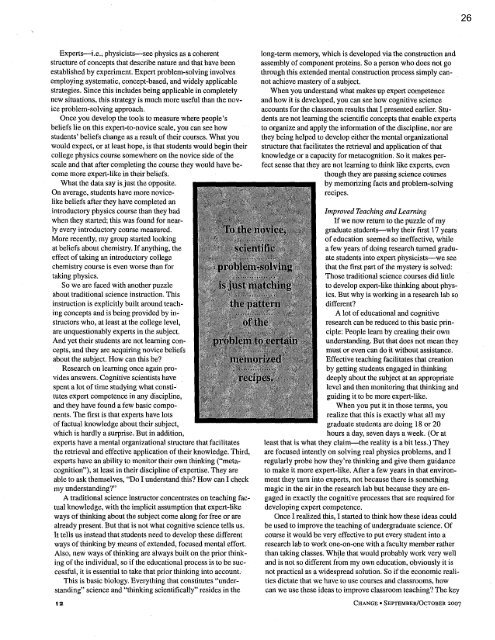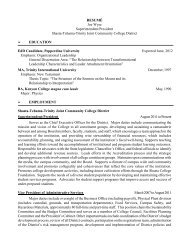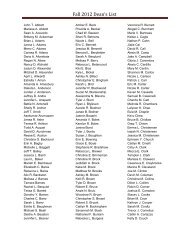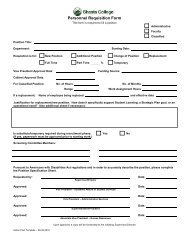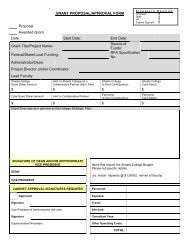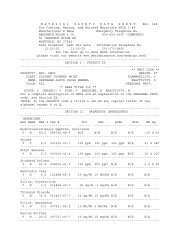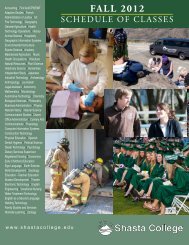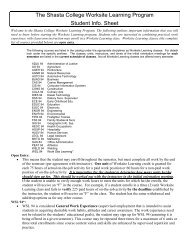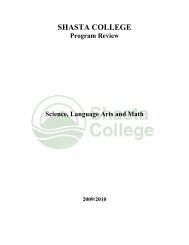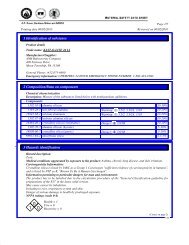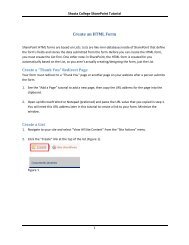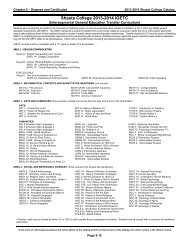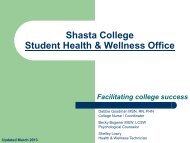Create successful ePaper yourself
Turn your PDF publications into a flip-book with our unique Google optimized e-Paper software.
26Experts-i.e., physicists-see physics as a coherentstructure of concepts that describe nature and that have beenestablished by experiment. Expert problem-solving involvesemploying systematic, concept-based, and widely applicablestrategies. Since this includes being applicable in completelynew situations, this strategy is much more useful than the noviceproblem-solving approach.Once you develop the tools to measure where people'sbeliefs lie on this expert-to-novice scale, you can see howstudents' beliefs change as a result of their courses. What youwould expect, or at least hope, is that students would begin theircollege physics course somewhere on the novice side of thescale and that after completing the course they would have becomemore expert-like in their beliefs.What the data say is just the opposite.On average, students have more novicelikebeliefs after they have completed anintroductory physics course than they hadwhen they started; this was found for nearlyevery introductory course measured.More recently, my group started lookingat beliefs about chemistry. If anything, theeffect of taking an introductory collegechemistry course is even worse than fortaking physics.So we are faced with another puzzleabout traditional science instruction. Thisinstruction is explicitly built around teachingconcepts and is being provided by instructorswho, at least at the college level,are unquestionably experts in the subject.And yet their students are not learning concepts,and they are acquiring novice beliefsabout the subject. How can this be?Research on learning once again providesanswers. Cognitive scientists havespent a lot of time studying what constitutesexpert competence in any discipline,and they have found a few basic components.The first is that experts have lotsof factual knowledge about their subject,which is hardly a surprise. But in addition,experts have a mental organizational structure that facilitatesthe retrieval and effective application of their knowledge. Third,experts have an ability to monitor their own thinking ("metacognition"),at least in their discipline of expertise. They areable to ask themselves, "Do I understand this? How can I checkmy understanding?" ·A traditional science instructor concentrates on teaching factualknowledge, with the implicit assumption that expert-likeways of thinking about the subject come along for free or arealready present. But that is not what cognitive science tells us.It tells us instead that students need to develop these differentways of thinking by means of extended, focused mental effort.Also, new ways of thinking are always built on the prior thinkingof the individual, so if the educational process is to be successful,it is essential to take that prior thinking into account:This is basic biology. Everything that constitutes "understanding"science and "thinking scientifically" resides in the12long-term memory, which is developed via the construction andassembly of component proteins. So a person who does not gothrough this extended mental construction process simply cannotachieve mastery of a subject.When you understand what makes up expert competenceand how it is developed, you can see how cognitive scienceaccounts for the classroom results that I presented earlier. Studentsare not learning the scientific concepts that enable expertsto organize and apply the information of the discipline, nor arethey being helped to develop either the mental organizationalstructure that facilitates the retrieval and application of thatknowledge or a capacity for metacognition. So it makes perfectsense that they are not learning to think like experts, eventhough they are passing science coursesby memorizing facts and problem-solvingrecipes.Improved Teaching and LearningIf we now return to the puzzle of mygraduate students-why their first 17 yearsof education seemed so ineffective, whilea few years of doing research turned graduatestudents into expert physicists-we seethat the first part of the mystery is solved:Those traditional science courses did littleto develop expert-like thinking about physics.But why is working in a research lab sodifferent?A lot of educational and cognitiveresearch can be reduced to this basic principle:People learn by creating their ownunderstanding. But that does not mean theymust or even can do it without assistance.Effective teaching facilitates that creationby getting students engaged in thinkingdeeply about the subject at an appropriatelevel and then monitoring that thinking andguiding it to be more expert-like.When you put it in those terms, yourealize that this is exactly what all mygraduate students are doing 18 or 20hours a day, seven days a week. (Or atleast that is what they claim-the reality is a bit less.) Theyate focused intently on solving real physics problems, and Iregularly probe how they're thinking and give them guidanceto make it more expert-like. After a few years in that environmentthey tum into experts, not because there is somethingmagic in the air in the research lab but because they are engagedin exactly the cognitive processes that are required fordeveloping expert competence.Once I realized this, I started to think how these ideas couldbe used to improve the teaching of undergraduate science. Ofcourse it would be very effective to put every student into aresearch lab to work one-on-one with a faculty member ratherthan taking classes. Wh~le that would probably work very welland is not so different from my own education, obviously it isnot practical as a widespread solution. So if the economic realitiesdictate that we have to use courses and classrooms, howcan we use these ideas to improve classroom teaching? The keyCHANGE • SEPTEMBER/OCTOBER 2007


